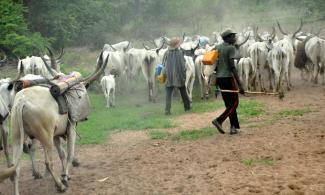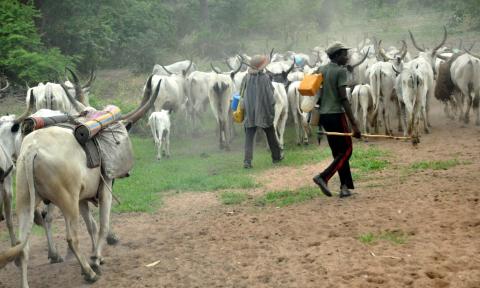
Rasche was reacting to a June 5 attack by terrorists on congregants of St. Francis Catholic Church, Owo, Ondo State where about 40 persons were killed and several others injured. He also spoke about the violence Christians in Nigeria are subjected to.
A senior fellow at the Religious Freedom Institute, Stephen Rasche has lamented the failure of Western countries to address squarely, issues of insecurity in Africa.
Rasche was reacting to a June 5 attack by terrorists on congregants of St. Francis Catholic Church, Owo, Ondo State where about 40 persons were killed and several others injured. He also spoke about the violence Christians in Nigeria are subjected to.

He said while many media houses have blamed the attack on unknown gunmen, “it is clear to people on the ground that the attackers were Fulani Muslim herdsmen who used recent cattle grazing conflicts to enact violence against Christians”.
In an interview on EWTN’s podcast “Conversations with Consequences,” Rasche said that this violence is not being addressed properly by the current government.
He said, “The violence has been building over the last several years and it’s really, unfortunately, not a surprise what happened this past weekend, when a culture of impunity against this type of growing violence has absolutely been allowed to develop and the current government in power has just been increasingly oblivious – throwing out statements of dismay after the fact – with absolutely no real follow-up on any of it. There’s very little confidence anywhere in Nigeria that the current government is going to be able to do anything about this.”
He alleged cover-up on the part of Western media, noting that the Pentecost Sunday massacre did not make any of the major news headlines.
Rasche further blamed Western governments for their unwillingness to squarely address issues of extreme Islamic practice, framing everything within the context of climate change or other narratives.
He said, “The other thing that is clearly going on, which comes from much of the Western governments, is this desire to frame everything in the context of either climate change or some other Western social justice priority, and a real lack of willingness to confront the issue of violent Islam, which exists in this world. When you keep denying that that can be an issue in and of itself, then it gets really difficult to address any narrative on these stories.”
Rasche said that the excuse of climate change gets more difficult to accept when looking at the violence that Christians are facing in Nigeria, emphasising that the issue of religious persecution cannot be replaced by more Western trending concerns.
Meanwhile, in another interview with the National Catholic Register, Rasche noted observations of how faith is flourishing in Nigeria, despite the persecution.
He was quoted as saying, “In these last two years, I have been able to participate in Masses in dozens of churches throughout northern and central Nigeria, from cathedrals holding thousands to tiny outpost churches up in the mountains, accessible only by long journeys on foot. In every place I have witnessed the same thing: great joy and deep participation.”
Nevertheless, Rasche explained that attempts to frame acts of brutality against innocent citizens must be called out as complicity, adding that it is important that action be demanded of leaders in both the U.S. and the EU.
“Climate change did not kill the Sunday worshippers this past weekend sitting peacefully at Mass in Owo. These situations have no hope of getting better if we in the West continue to make up cover stories for what is actually happening in order to fit our other narratives.”